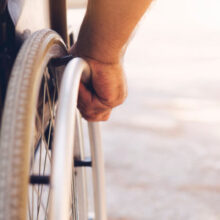Myositis patients who already have difficulty with movement may want to take a look at their sleep patterns. The Nurse’s Health Study, a cohort study of more than 70,000 women nurses, checked with them every two years to examine the impact of sleep on future mobility in people with those chronic health conditions that affect movement.
Their findings, published in the journal Sleep Epidemiology, suggested that poor sleep predicted a decline in mobility after a chronic health diagnosis, especially in those with signs of sleep apnea.
“Poor sleep is often overlooked or assumed to be a consequence of aging, functional decline, or disability in those with chronic health conditions,” said the study’s senior author Tiffany J. Braley, MD, MS, associate professor of neurology. “However, sleep disturbances and disorders may also be an upstream contributor to these issues.” Braley directs the multiple sclerosis and neuroimmunology division at the University of Michigan Health.
The study’s first author, Daniel Whibley, PhD, added that sleep has a direct impact in how patients accomplish activities that may be part of their treatment. Whibley is an assistant professor of physical medicine and rehabilitation at University of Michigan Health.
Chronic disease coupled with inadequate sleep was also associated with an increased use of assistive devices such as a cane or wheelchair. Braley said she encourages providers to screen patients with chronic conditions for sleep disturbances, and refer them to sleep specialists, because the vast majority of sleep disorders are highly treatable.
